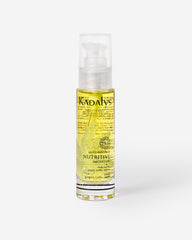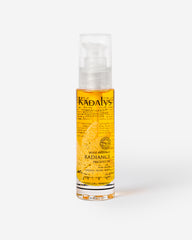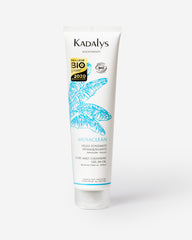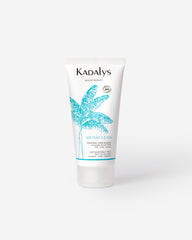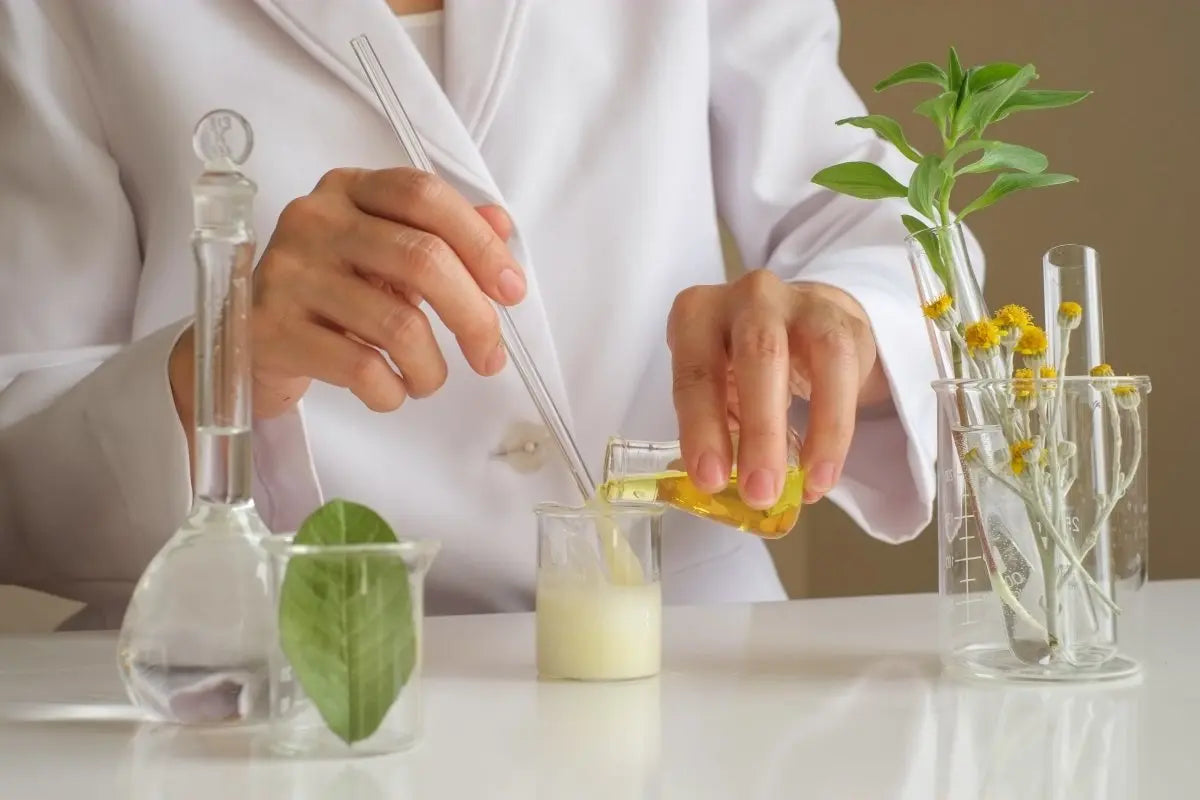
What is organic beauty and how do you choose your products?
Whether it is to stay on trend, follow your ecological conscience or to overcome skin problems, we all have a reason to be interested in organic alternatives in cosmetics.
Indeed, when we know that everything we apply to our skin ends up in our body, it is not surprising that more and more of us are analyzing what makes up our care! In “conventional” beauty, chemical and synthetic ingredients are common: parabens, PEGs, sulphates, silicones and other petrochemicals mix with natural ingredients in formulas. Unfortunately, some of these ingredients are suspected of being harmful to the planet and our health and since our body absorbs whatever is applied to it, it is best to be vigilant about the composition of the products used.
Are you troubled by these controversies around cosmetic ingredients and your beauty routine has become a real headache? Maybe it's time to turn to healthier, more natural beauty! Let yourself be guided, we explain why and how to take the plunge to turn to organic cosmetics.
CLEAN BEAUTY, NATURAL OR ORGANIC BEAUTY COSMETICS, KESAKO?
When you want to move towards healthier beauty, you find yourself in front of an ocean of possibilities between Clean Beauty, natural cosmetics or organic beauty and it is not easy to find your way around. To make your choice in full awareness, there is nothing like being well informed and above all knowing your requirements in terms of healthy beauty in order to know where to place your cursor.
But what does “Clean Beauty” mean?
A big trend of recent years, "Clean Beauty" has no exact definition. It's a beauty that wants to be more vigilant about cosmetic formulations without being too demanding. Here, we do not completely ban synthetic chemical ingredients but we avoid the integration of controversial or irritating substances in the formulations and we control the dosage. The goal of Clean Beauty? Move away from unnecessary or harmful ingredients to have shorter and clearer ingredient lists so that consumers can relate to them and regain confidence.
Beauty Bio Kadalys
Natural beauty and organic beauty, what are the differences?
Can't tell the difference between natural beauty and organic beauty? Nothing abnormal as these terms are often associated! Yet there is a clear line between the two.
A cosmetic is considered natural when its ingredients come from or are extracted from nature (vegetable or mineral) and they are minimally processed. If we can say that organic skincare is natural, the reverse is not true since a brand can decide to use only natural ingredients in its formulas without going as far as a certification process. biological.
In general, an organic cosmetic is a natural cosmetic which is required to have a certain percentage of ingredients from Organic Farming: that is to say that these ingredients are cultivated with respect for the natural environment. and exclude chemical treatments, GMOs, pesticides etc. Obviously, in the formulation of an organic cosmetic we get rid of the components resulting from the petrochemicals such as silicones, parabens, polymers but also synthetic dyes and fragrances.
But to be considered organic, a cosmetic must above all comply with a rigorous charter approved by a certification body: the label. At KADALYS, all products are ECOCERT® * and COSMEBIO® * certified
logos and labels cosmebio ecosert
ECOCERT® is an independent French control and certification body approved by the Ministry of Industry. To obtain ECOCERT® certification and become “Organic Cosmetics”, a product must comply with the COSMEBIO® label charter which guarantees:
that at least 95% of the ingredients that make up the product are of natural origin
that at least 95% of these plant ingredients are from organic farming
that at least 10% of the entire formula is organic
that the formula does not contain any of its components: GMOs, parabens, silicones, phenoxyethanol, phthalates, synthetic dyes
Since 2017, a new common standard called COSMOS has been created by several European organizations including COSMEBIO® and ECOCERT® in order to harmonize European rules. It uses the standards set out above but strengthens the proportion of organic ingredients required in the formula by reducing it from 10% minimum to 20%.
You will understand, by switching to organic cosmetics you are opting for healthy beauty products, free of toxic components, the production of which respects the environment.
kadalys rabbit And vegan care in all of this? A cosmetic is vegan when it does not contain any ingredient of animal origin and when it guarantees that none of these components have been tested on animals. Exit bee products (beeswax, pollen, honey or royal jelly) as well as those derived from animal fats, derived from milk or eggs. Thus, an organic, natural or conventional cosmetic can be considered vegan if it respects these two rules: it is as simple as that! On the other hand, the vegan dimension only deals with respect for animal welfare and absolutely does not guarantee that a product is natural or organic. WHY TURN TO ORGANIC COSMETICS BRANDS?
For the incredible effectiveness of organic skincare
Devoid of chemical and synthetic ingredients, organic creams are generally better for the health and beauty of our skin. Indeed, thanks to its content and its concentration of natural active ingredients, an organic care has a composition which is similar to the components naturally present in the skin and it is therefore more easily assimilated by the latter.
The quality is also at the rendezvous since the assets are often obtained by "green" processes without chemical transformation (such as cold pressing for example) which preserve all their benefits and their effectiveness.
For sensoriality and pleasure
And yes, contrary to popular belief, an organic face cream is no less pleasant to apply than a classic face cream and not all organic skincare products have awful plant scents. Many brands of organic cosmetics have made this their main argument: organic can be synonymous with pleasure! Texture, smell, appearance, color, innovations in cosmetics prove natural skincare products, and organic products have nothing to envy to other skincare products when it comes to sensoriality.
For their limited impact on our environment
By choosing to turn to an organic cosmetics brand, we are sure to support a commitment for our planet. The production of organic products puts aside heavy and polluting petrochemicals and focuses on production methods that respect flora and fauna. Likewise, most organic brands choose eco-design to limit the environmental impact at all stages of the production and distribution of their products!
So, will you finally take the plunge and swap your cream for a brand new organic day cream?
* excluding limited editions and Precious Sublime Oil


